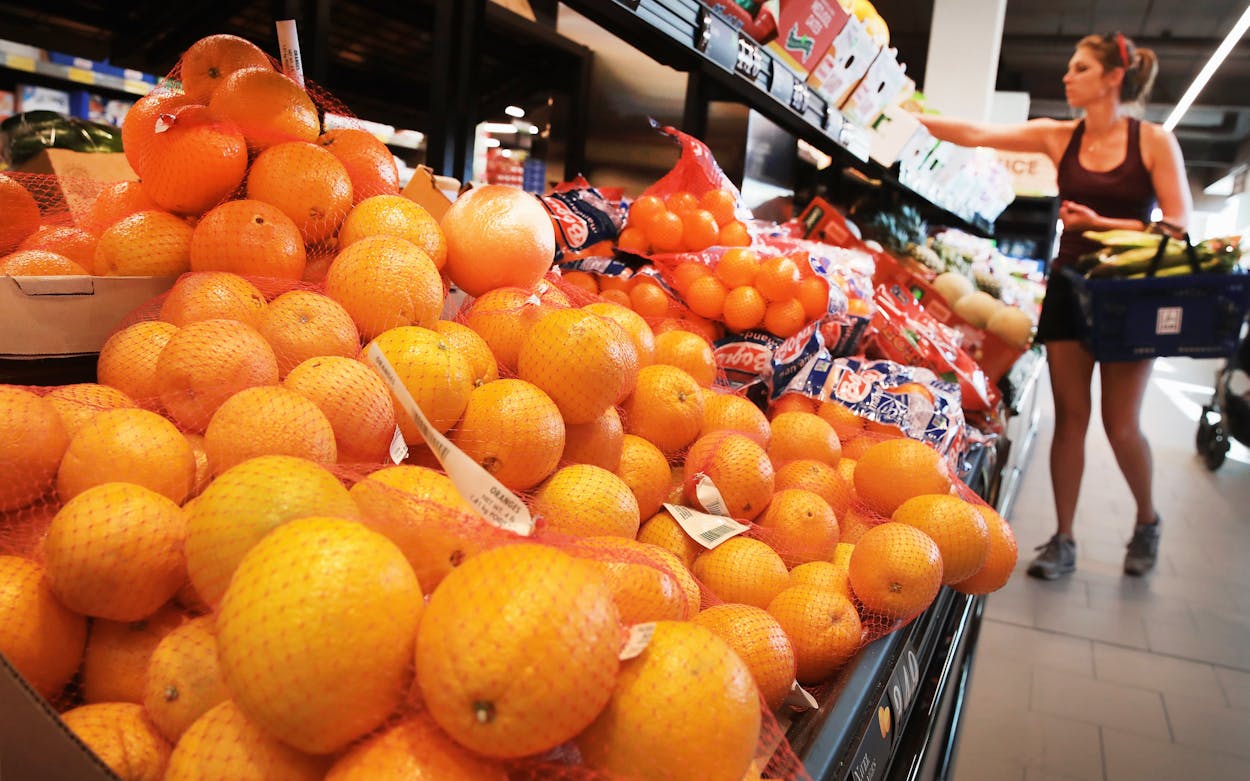Texans love their home-grown supermarket chains. When HEB started some of their most famous and beloved items online, Texpats around the U.S. wept with joy. When the bottom fell out of Whole Foods last month, Texans wondered what it meant for the fate of the supermarket. When HEB spinoff Central Market places well in national lists, it’s news that people in Austin, Dallas, Houston, and San Antonio boast about. Rumors that HEB would be opening locations in Dallas last year sent a shockwave through the Metroplex. (Turns out they were additional Central Market locations.) The Houston-based Fiesta Mart chain and its impressive array of international foods—along with the usual supermarket staples—inspires fierce loyalty among those lucky enough to live near one of its sixty locations in Houston, DFW, and Austin.
But two more grocery stores are about to enter the war for the hearts of Texas grocery shoppers. The German discount grocery titans Aldi and Lidl are both planning aggressive expansion into the state. Aldi, which has a firm presence in other parts of the U.S., is investing $3.4 billion into the U.S. market. The first stores from the retailer opened in Texas in 2010, and quickly expanded to more than one hundred in Texas and Oklahoma. Now, according to a Dallas Morning News story from last month, the Texas plans are exploding:
Last year, a new distribution center opened in Rosenberg, near Houston, and Aldi split the state into two divisions, giving it more capacity for new stores. Aldi said Monday that it will spend $3.4 billion to get to 2,500 stores across the U.S. by the end of 2022.
The original Texas division in Denton that opened the first Texas Aldi stores in 2010 was handling more than 100 stores in Texas and Oklahoma from its almost 500,000-square-foot distribution center.
The second Texas distribution center frees up capacity in North Texas, said Scott Huska, division vice president over the Denton region that includes Dallas-Fort Worth. Now the Denton Aldi warehouse is servicing 54 stores with plenty of room to take on more, he said.
The North Texas division plans to open five to 10 stores a year, Huska said in an interview, and Rosenberg may open a few more than that. Aldi owns 183 acres around its Denton distribution center and it could easily expand, Huska said.
Texas is fertile territory for supermarket retailers, despite the presence of popular Texas based chains and giant national supermarkets such as Kroger, Walmart, and Albertsons subsidiaries like Randall’s and Tom Thumb. There are a lot of people here, and the competitive pricing offered by Aldi and Lidl means that there’s a good opportunity to test the depth of Texans’ loyalty. Commercial real estate news site Bisnow noted in May that Lidl invested $10 million in land across North Texas, and plans in Houston are underway.
In the U.K., Aldi and Lidl have experienced record growth in recent years, vastly outpacing their homegrown competition in a rough British economy. At the moment, the dollar is stronger than the pound, so the circumstances may not apply here—but the growth of nearly 20 percent for the two chains over twelve weeks in 2017, compared to growth of less than 2 percent by the biggest four U.K. supermarkets suggests that it’d be a mistake to sleep on Lidl and Aldi in Texas.
If that were to happen, the impact would quickly be felt around the state’s supermarket landscape. Larger chains eventually shifted strategies to react to the challenge presented by Whole Foods—a situation that ultimately helped send the company into the tailspin that lead to the sale to Amazon. It’s likely that the Walmarts and Krogers of the world—to say nothing of the HEB’s—would similarly try to mitigate any losses brought by the booming Lidl and Aldi expansion by attempting to absorb the aggressive pricing model.
At some point, though, the question will be whether the big-box supermarkets can successfully be everything to everyone. Whole Foods struggled, in part, because Walmart, Kroger, Albertsons, and HEB were able to dedicate portions of their stores to displays of Whole Foods-like products. Can those stores be Whole Foods in one section, Aldi in another, and maintain their own identity in a third?
If not the future of grocery shopping in Texas is likely to include struggling between loyalty to stores like HEB, Fiesta, and Whole Foods, and considering if maybe there’s room to take advantage of the steep discounts offered by the Germans.








